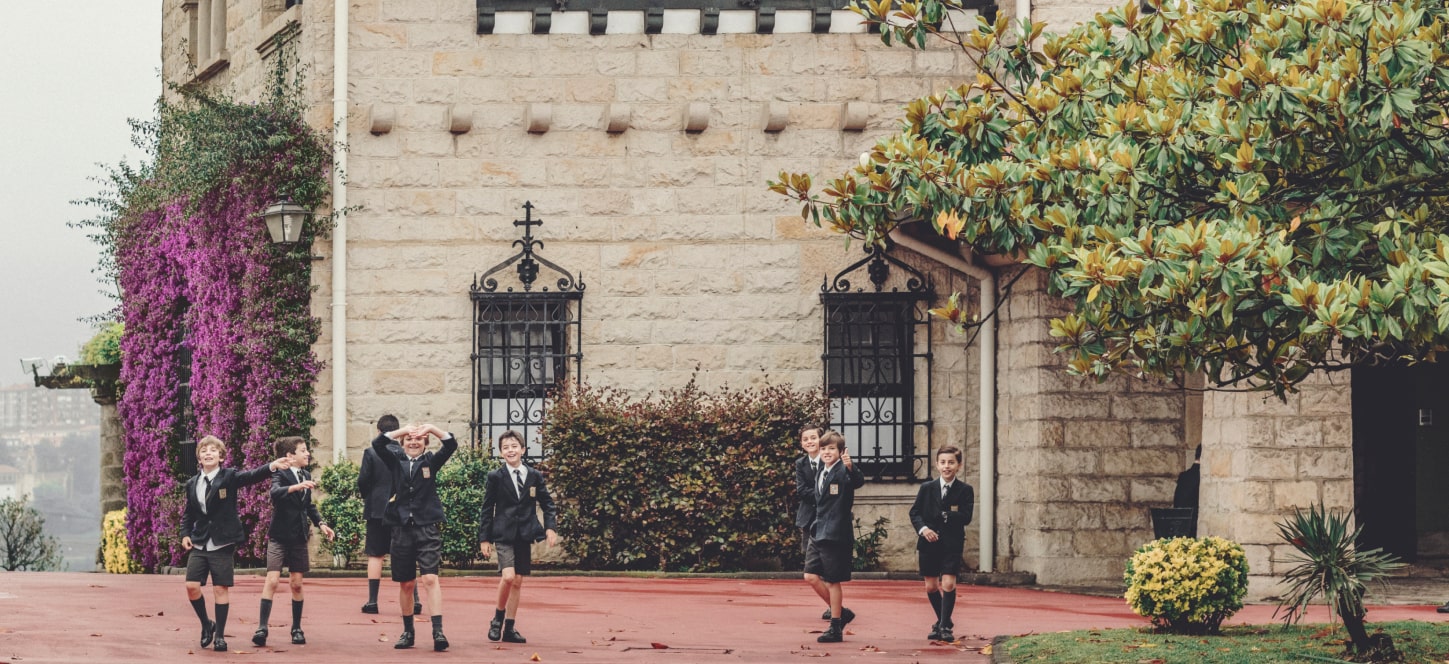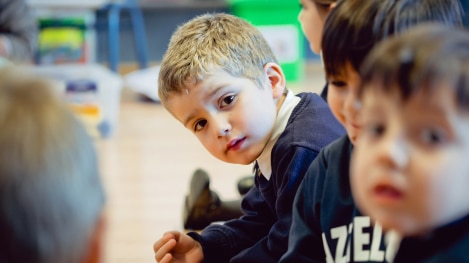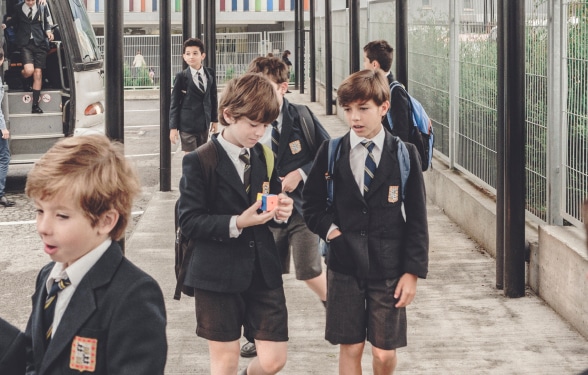
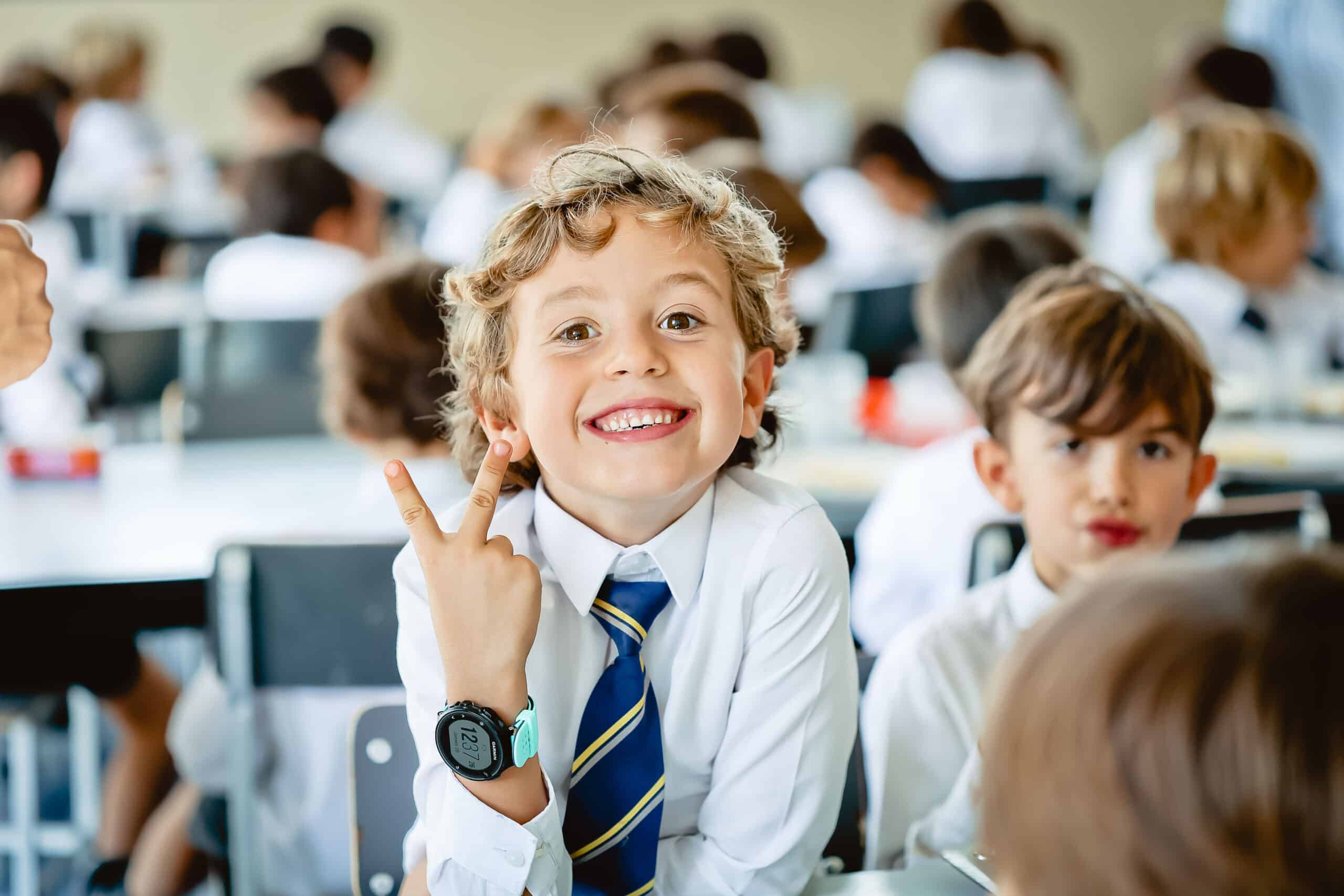
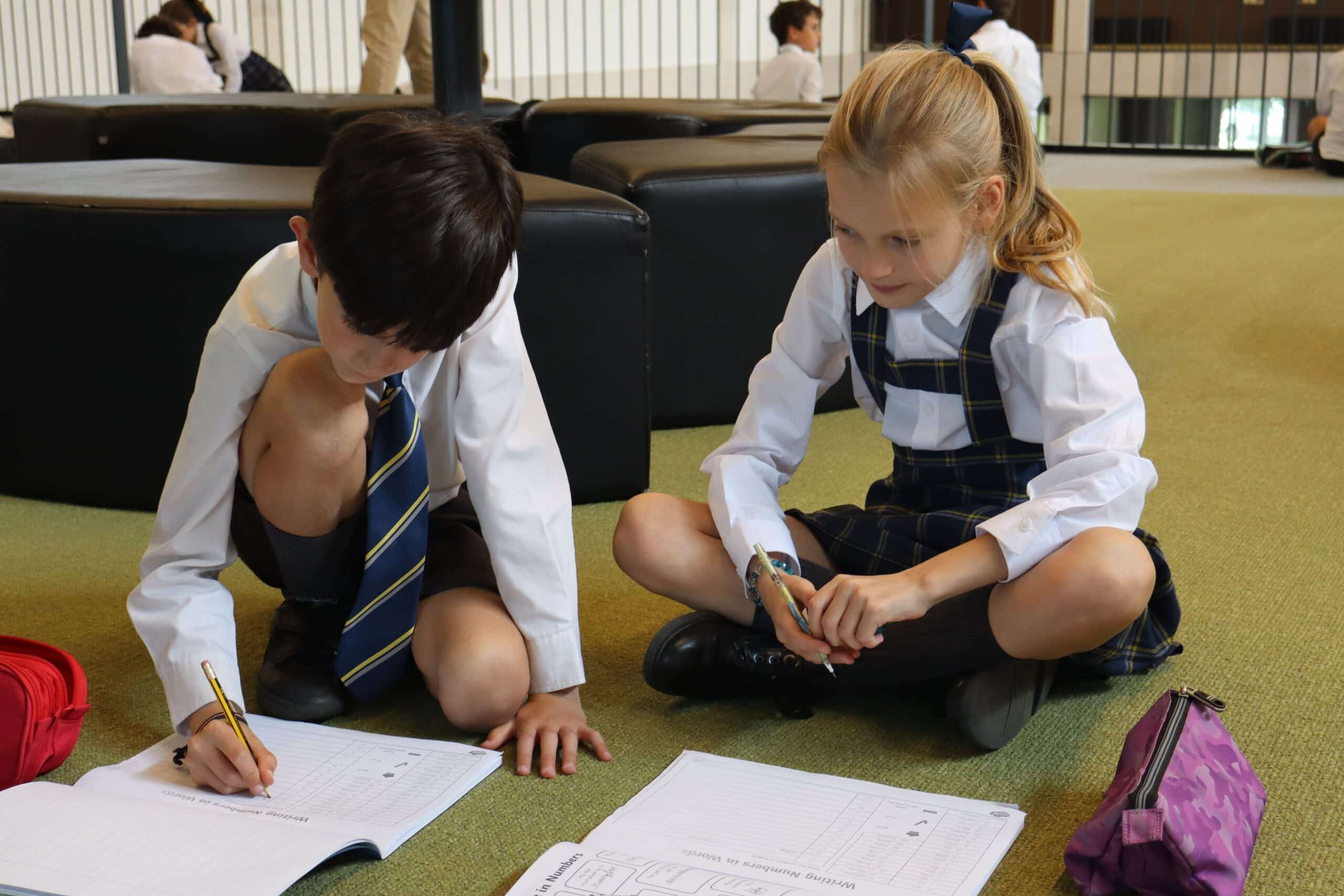






Consulta toda la información necesaria para formalizar la matrícula en Gaztelueta: quiénes tienen que realizar la matrícula, plazos y fechas clave del proceso así como la documentación necesaria en la web de nuestro colegio.
The relationship between families and school could be described as close, familiar, close and, above all, personal. At Gaztelueta we are clear that our main purpose is to accompany families in the education of their children. We believe it is essential for parents to be involved in the school's education so that work is carried out jointly, reinforcing the values and messages that the pupils receive at home, and vice versa.
Each pupil, from the beginning of their school years, has a tutor/preceptor assigned to them so that, together with their parents, they can jointly bring out the talents and qualities of each child, with the hope that in the future they will be able to put them at the service of others.
3 personal interviews with the tutor/preceptor are planned over the course of the course, approximately one per term.
In addition, the school provides parents with the necessary training resources so that they can play a leading role in the task of educating their children (talks on family orientation for parents, sessions at the beginning and end of the school year, parents' school, conferences, workshops, excursions for parents and children, etc.).
Gaztelueta is committed to trilingualism (Spanish, English and Basque) as a means of learning both content and mastery of the three languages. In addition, French is added as a language that can be taken as an optional or extracurricular subject from the primary school stage. Oral competence in the different languages is a key element in the school from the infant stage. A great support in the learning of English at an early age is the Jolly Phonics programme or the time dedicated to Speaking Corner.
An international and globalised professional academic environment demands from future leaders not only specific qualifications in different languages, but also a competence in oral expression that allows them to interact fluently and confidently in a language that is not their mother tongue.
Since 1990, the Department of Education of the Basque Government has approved our trilingual project, with the aim of achieving immersion and regular use of the three languages mentioned by the pupils. Different subjects of the curriculum are taught in second languages throughout infant, primary and secondary education. We are also an official examination centre for Cambridge and French Institute qualifications.
80% of our pupils finish 2nd Baccalaureate with a First Certificate and 55% also finish with an Advanced or Higher level. We have various exchange programmes as well as international projects with schools all over the world as part of our Global Learning programme.
If you want to know more: Trilingualism from Infant Education onwards
At Gaztelueta we work with an educational model that seeks personalised attention for all pupils. In this way, each student can achieve an integral development of his or her abilities and personality.
We are currently implementing the International Baccalaureate by committing to an innovative educational model through new methodologies that allow the development of competencies and skills that our students will need in their professional development. This new way of working stimulates the ability to apply knowledge to new situations, which we consider fundamental in a constantly changing world.
Training in values permeates all educational work. The transmission of values is carried out as a priority through the example and good work of each of the components of the educational community: parents, teachers and non-teaching staff.
Gaztelueta School's teaching style is unified by the training in values that is transmitted throughout the educational day. At Gaztelueta we not only give classes in values and virtues, but we also use the rest of the subjects to transmit the values of our teaching style: sincerity, effort, freedom and responsibility in our daily work, obedience to parents and teachers, respect for people, discipline, etc. Loyalty and sincerity are two human virtues which we are especially taught to practise and which are present in the school's motto: "be our yes, yes; be our no, no".
On the other hand, the promotion of voluntary work is channelled through the NGOs Zabalketa and Ireki (recently awarded), organised by the Alumni of the school. Gaztelueta remains firm in the conviction that all school and academic education must include a human, solidarity and service component in order to be complete. At the school we seek to educate students with values, who know how to open up to external realities and give their time to others, especially to those most in need.
Find out more:
Gaztelueta solidarity projects
Gaztelueta Coexistence Plan
Gaztelueta has a wide range of extracurricular activities:
Languages
Sports
School of Music
The Music School offers the pupils of the school the possibility of studying at a non-regulated music school, as a complement to their ordinary academic curriculum. Depending on the stage, there is a beginners' programme and, from the 3rd year of Primary, pupils can choose between different instruments: piano, drums, guitar and violin.
School of Arts
Greenpower
This activity is offered as an extracurricular activity for students in 3rd and 4th ESO. Pupils work in teams to build an electric car. They learn about materials, electrical conductors, speed, friction, levers and gears, as well as developing artistic skills in the design and drawing of the bodywork.
Summer activities
During the months of June, July and September, the school organises summer courses, in which English is the vehicular language and most of the teaching staff are native speakers. We provide students with a language immersion experience in the comfort of a familiar environment.
Among other activities, robotics, creativity, science workshop, music, sports, speaking corner and organic garden with chickens are offered for the youngest children. The older children can take part in various STEAM workshops: Robotics and Lego, Drones, Arts and Greenpower Project to reinforce learning in a playful space, combining English, fun and sport.
